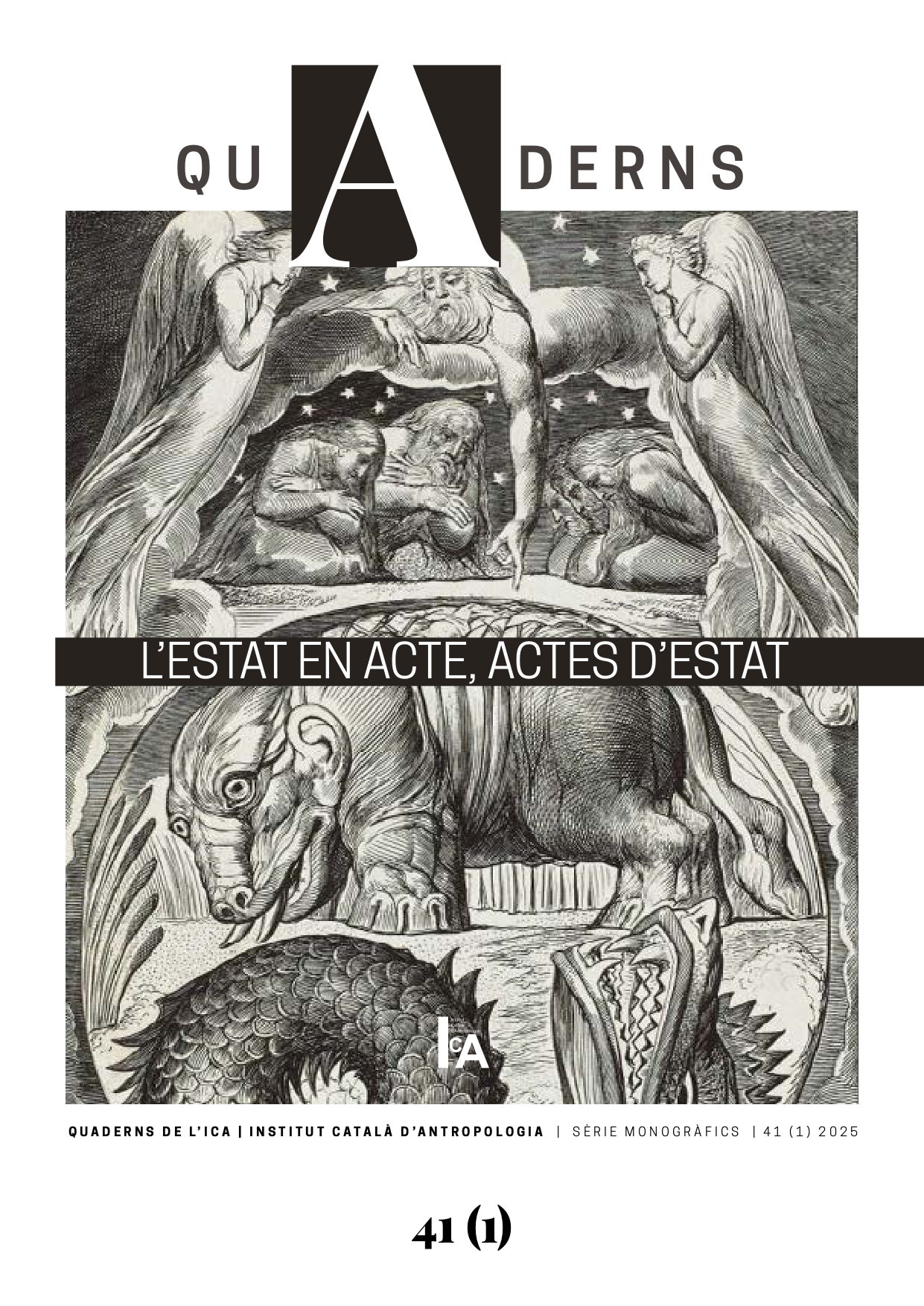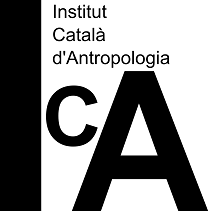Visualitzar l’Estat “sense Estat”: Nous imaginaris territorials anarco-capitalistes en el moviment per les jurisdiccions privades
DOI:
https://doi.org/10.56247/qua.525Paraules clau:
Privatització, jurisdiccions especials, estatalitat, territori, representacióResum
Aquest article presenta una recerca sobre les xarxes globals tecnolibertàries emergents orientades a l’establiment de jurisdiccions basades en capital de risc, criptomonedes i Web3, i els nous projectes territorials i estatals que en resulten, incloent-hi ciutats privades lliures, ciutats amb carta fundacional, micronacions, colònies marines i estats xarxa. Arrelats en una ideologia declaradament anarco-capitalista, molts d’aquests projectes pretenen paradoxalment eliminar “l’Estat” en favor de societats descentralitzades i autoorganitzades, però simultàniament produeixen i reforcen diverses formes de poder sobirà centralitzat. L’article ofereix una anàlisi crítica de les pràctiques estatals tecnolibertàries i anarco-capitalistes a partir de l’estudi de les representacions visuals i discursives que es fan servir per transmetre i alhora ocultar idees d’Estat, governança i poder. Em centro principalment en l’ús de la metàfora (Semino 2008) i l’espectacle (Tsing 2005) en les representacions anarco-capitalistes del territori. L’article analitza la Zona de Desenvolupament Econòmic i Ocupació (ZEDE) Próspera, situada a l’illa de Roatán, com a cas d’estudi sobre pràctiques estatals privades. A més d’examinar les estructures d’Honduras Próspera LLC per governar aquesta jurisdicció autònoma i l’“estat xarxa” de biotecnologia per a la longevitat que acull, l’article explora també les representacions visuals que acompanyen les estructures reals de governança i poder estatal.
Descàrregues
Global Statistics ℹ️
|
369
Views
|
472
Downloads
|
|
841
Total
|
|
Referències
Abrams, P. (1988). Notes on the difficulty of studying the state. Journal of Historical Sociology, 1(1), 58–89. https://doi.org/10.1111/j.1467-6443.1988.tb00004.x DOI: https://doi.org/10.1111/j.1467-6443.1988.tb00004.x
Anderson, B. (1983). Imagined communities: Reflections on the origin and spread of nationalism. Verso.
Bach, J. (2011). Modernity and the urban imagination in economic zones. Theory, Culture & Society, 28(5), 98–122. https://doi.org/10.1177/0263276411411495 DOI: https://doi.org/10.1177/0263276411411495
Bakonyi, J. (2022). Modular Sovereignty and Infrastructural Power: The Elusive Materiality of International Statebuilding. Security Dialogue, 53(3), 256-278. https://doi.org/10.1177/09670106211051943 DOI: https://doi.org/10.1177/09670106211051943
Bell, T. W. (2017). Your next government?: From the nation state to stateless nations. Cambridge University Press. DOI: https://doi.org/10.1017/9781316676387
Borras, S. M., Hall, R., Scoones, I., White, B. & Wolford, W. (2011). Towards a better understanding of global land grabbing: An editorial introduction. Journal of Peasant Studies, 38(2), 209–216. https://doi.org/10.1080/03066150.2011.559005 DOI: https://doi.org/10.1080/03066150.2011.559005
Brash, J. (2006). Anthropologies of urbanization: New spatial politics and imaginaries. Urban Anthropology and Studies of Cultural Systems and World Economic Development, 35(4), 341–353. https://www.jstor.org/stable/40553527
Brenner, N. (2004). New state spaces: Urban governance and the rescaling of statehood. Oxford University Press.
Craib, R. B. (2022). Adventure capitalism: A history of libertarian exit, from the era of decolonization to the digital age. PM Press.
Criterio.hn. (2023, August 24). Arcah denuncia que Zede Próspera pretende crear el concepto de “ciudadanía prohibida.” Criterio.hn. https://criterio.hn/arcah-denuncia-que-zede-prospera-pretende-crear-el-concepto-de-ciudadania-prohibida/
Datta, A. (2015). New urban utopias of postcolonial India. Dialogues in Human Geography, 5(1), 3–22. https://doi.org/10.1177/2043820614565748 DOI: https://doi.org/10.1177/2043820614565748
Easterling, K. (2014). Extrastatecraft: The power of infrastructure space. Verso.
Ferguson, J. (1990). The anti-politics machine: “Development,” depoliticization, and bureaucratic power in Lesotho. Cambridge University Press.
Ferguson, J., & Gupta, A. (2002). Spatializing states: Toward an ethnography of neoliberal governmentality. American Ethnologist, 29(4), 981–1002. https://doi.org/10.1525/ae.2002.29.4.981 DOI: https://doi.org/10.1525/ae.2002.29.4.981
Friedman, Patri (2012, April 26). Seasteading- Building on the Platform of the Oceans: Patri Friedman at TEDxSF [Video]. Youtube. https://www.youtube.com/watch?v=maLAMwhTjHk
Geglia, B., & Nuila Herrmannsdörfer, A. (2021, February 15). A private government in Honduras moves forward. North American Congress on Latin America. https://nacla.org/news/2021/02/12/private-government-honduras-zede-prospera
Harvey, D. (1989). From managerialism to entrepreneurialism: The transformation in urban governance in late capitalism. Geografiska Annaler: Series B, Human Geography, 71(1), 3–17. https://doi.org/10.1080/04353684.1989.11879583 DOI: https://doi.org/10.1080/04353684.1989.11879583
Haskins, C. (2024, September 23). A mysterious school for the network state crowd is now in session. Wired. https://www.wired.com/story/network-school-balaji-srinivasan/
Jazeel, T. (2015). Utopian urbanism and representational city-ness. Dialogues in Human Geography, 5(1), 27–30. https://doi.org/10.1177/2043820614565866 DOI: https://doi.org/10.1177/2043820614565866
Kauffman, S. A. (1995). At home in the universe: The search for laws of self-organization and complexity. Oxford University Press.
Levien, M. (2011). Special economic zones and accumulation by dispossession in India. Journal of Agrarian Change, 11 (4), 454–83. https://doi.org/10.1111/j.1471-0366.2011.00329.x DOI: https://doi.org/10.1111/j.1471-0366.2011.00329.x
Levien, M. (2012). The land question: Special economic zones and the political economy of dispossession in India. The Journal of Peasant Studies 39 (3-4), 933–69. https://doi.org/10.1080/03066150.2012.656268 DOI: https://doi.org/10.1080/03066150.2012.656268
Li, T. M. (2007). The will to improve: Governmentality, development, and the practice of politics. Duke University Press. https://doi.org/10.1215/9780822390411 DOI: https://doi.org/10.1515/9780822389781
Lynch, C. R. (2017). “Vote with your feet”: Neoliberalism, the democratic nation-state, and utopian enclave libertarianism. Political Geography, 59, 82–91. https://doi.org/10.1016/j.polgeo.2017.03.005 DOI: https://doi.org/10.1016/j.polgeo.2017.03.005
Lynch, C. R., & MuñozViso, Á. (2023). Blockchain urbanism: Evolving geographies of libertarian exit and technopolitical failure. Progress in Human Geography, 48(1), 66–84. https://doi.org/10.1177/03091325231219699 DOI: https://doi.org/10.1177/03091325231219699
MacDonald, T. J. (2019). The political economy of non-territorial exit. Edward Elgar Publishing. https://doi.org/10.4337/9781788979375 DOI: https://doi.org/10.4337/9781788979382
Majone, G. (1997). From the positive to the regulatory state: Causes and consequences of changes in the mode of governance. Journal of Public Policy, 17(2), 139–167. https://doi.org/10.1017/S0143814X00003524 DOI: https://doi.org/10.1017/S0143814X00003524
Nuila Herrmannsdörfer, A. (2021, May 20). Las ZEDE en los tribunales de Viena. Contra Corriente. https://contracorriente.red/2021/05/20/las-zede-en-los-tribunales-de-viena/
Ong, A. (2006). Neoliberalism as exception: Mutations in citizenship and sovereignty. Duke University Press. DOI: https://doi.org/10.1515/9780822387879
Ong, A. (2007). Neoliberalism as a mobile technology. Transactions of the Institute of British Geographers, 32(1), 3–8. https://doi.org/10.1111/j.1475-5661.2007.00234.x DOI: https://doi.org/10.1111/j.1475-5661.2007.00234.x
Praxis Nation (2024). Declaration speech. Retrieved May 30, 2025 from https://www.praxisnation.com/news/declaration-speech
Próspera. (n.d.)a. Regulatory environment. In Próspera Help Center. Retrieved June 11, 2025, from https://intercom.help/prospera-c3520d800849/en/articles/8258613-regulatory-environment
Próspera. (n.d.)b. Doing business in Próspera [PDF]. Retrieved June 11, 2025, from https://info.prospera.hn/downloads/doing_business_in_prospera.pdf
Próspera. (2025, January 21). Próspera announces strategic investment by Coinbase Ventures and other investors to increase economic freedom worldwide. Próspera News. https://www.prospera.co/news/prospera-announces-strategic-investment-by-coinbase-ventures-and-other-investors-to-increase-economic-freedom-worldwide
Radcliffe, S.A. (2001). Imagining the State as a Space: Territoriality and the Formation of the State in Ecuador. In T. Blom Hansen & F. Stepputat (Eds.), States of Imagination: Ethnographic Explorations of the Postcolonial State. Duke University Press. https://doi.org/10.1215/9780822381273 DOI: https://doi.org/10.2307/j.ctv11smxxj.8
RMITV. (2024, October 15). Alcalde Ron McNab: Tema ZEDES - Próspera - No reconozco a Próspera como otra nación [Video]. Facebook. Retrieved April 15, 2025 from https://www.facebook.com/aracelysolorzano21/videos/1063017509164423/
Roatan Tourism Bureau. (2022, April 22). What does it mean to declare ZEDEs unconstitutional in Honduras? https://roatantourismbureau.com/community-updates/what-does-it-mean-to-declare-zedes-unconstitutional-in-honduras
Rzepecki, R., Cojocaru, A. I., & Crittenden, M. (2023). Spectra whitepaper: Building a sustainable, livable, and affordable city for 1M+ people through multilayer blockchain cooperatives and extended reality experimentation. Retrieved May 30, 2025 from https://www.spectracities.com/papers/
Scott, J. C. (1998). Seeing like a state: How certain schemes to improve the human condition have failed. Yale University Press.
Semino, E. (2008). Metaphor in discourse. Cambridge University Press. Simpson, I (2021) Performing freedom: An examination of Ocean Builders’ successful failure in Thailand. Transformations 35: 65-87. Simpson, I. & Sheller, M. (2022). Islands as interstitial encrypted geographies: Making (and failing) cryptosecessionist exits. Political Geography 99: 102744. https://doi.org/10.1016/j.polgeo.2022.102744 DOI: https://doi.org/10.1016/j.polgeo.2022.102744
Slobodian, Q. (2023). Crack-up capitalism: Market radicals and the dream of a world without democracy. Metropolitan Books.
Smith, H. & Burrows, R. (2021). Software, sovereignty and the post-neoliberal politics of exit. Theory, Culture & Society 38(6): 143-166. https://doi.org/10.1177/0263276421999439 DOI: https://doi.org/10.1177/0263276421999439
Srinivasan, B. (2022). The Network State: How to Start a New Country. https://thenetworkstate.com
Steinberg, P. E., Nyman, E., & Caraccioli, M. J. (2012). Atlas swam: Freedom, capital, and floating sovereignties in the seasteading vision. Antipode, 44(4), 1532–1550. https://doi.org/10.1111/j.1467-8330.2011.00963.x
Thelen, T., Vetters, L., & von Benda-Beckmann, K. (2017) Stategraphy: Toward a Relational Anthropology of the State. Oxford: Berghan. DOI: https://doi.org/10.2307/j.ctvw048nm
Tsing, A. L. (2005). Friction: An ethnography of global connection. Princeton University Press. DOI: https://doi.org/10.1515/9780691263526
Weber, M. (1948). Politics as a Vocation. In H. Gerth & C.W. Mills (Eds.), From Max Weber – Essays in Sociology (pp. 77-128). Routledge. https://doi.org/10.1111/j.1467-8330.2011.00963.x DOI: https://doi.org/10.1111/j.1467-8330.2011.00963.x
Descàrregues
Publicades
Com citar
Número
Secció
Llicència
Drets d'autor (c) 2025 Quaderns de l'Institut Català d'Antropologia

Aquesta obra està sota una llicència internacional Creative Commons Reconeixement-NoComercial-CompartirIgual 4.0.
(CC BY-NC-SA 4.0)
Dades de finançament
-
Social Science Research Council
Números de la subvenció Melon International Dissertation Fellowship




